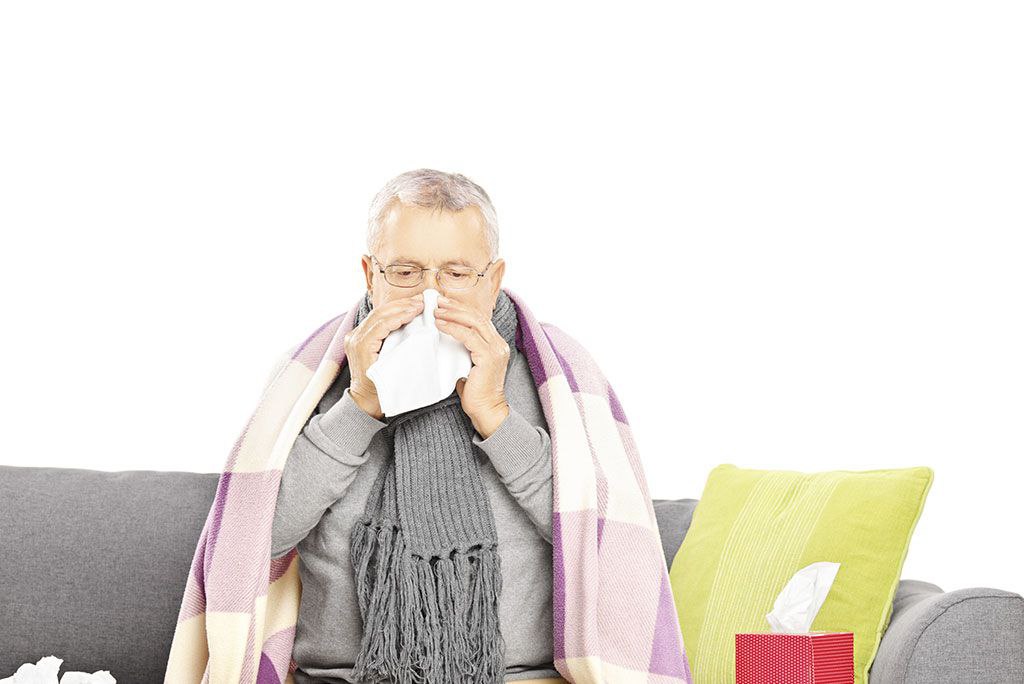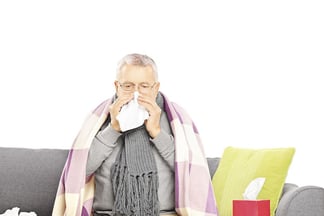
National Influenza Vaccination Week: How to Tell the Difference Between a Cold and the Flu
Updated from the original publication on December 9, 2015.
 Every year, the U.S. Centers for Disease Control emphasizes the importance of getting a flu vaccination and established National Influenza Vaccination Week. This year, National Influenza Vaccination Week takes place between December 6 and December 12, 2015.
Every year, the U.S. Centers for Disease Control emphasizes the importance of getting a flu vaccination and established National Influenza Vaccination Week. This year, National Influenza Vaccination Week takes place between December 6 and December 12, 2015.
The CDC also wants to remind seniors that it is never too late to get vaccinated against the influenza virus and avoid possible serious complications of the flu. Even a minor illness can pose a significant health risk for seniors because their immune systems are less robust. A 2013 study showed that 80-90% of seasonal flu-related deaths had occurred in people aged 65 and older. The same study showed that 50-70% of seasonal flu-related hospitalizations occurred in the same age group as well.
Seniors also need to be aware that they can easily contract colds or the flu from their younger relatives who may not know to practice good "flu" hygiene.
Flu "season" runs from October through May in the U.S., when certain factors make it easier for seniors to be infected with the influenza virus. Some of these factors include increased indoor activity and close contact with others, a decline in UV radiation (sunlight may suppress viral activity) and colder temperatures, which tends to dehydrate your mucous membranes (nasal airways and throat). These mucous membranes help defend your body against the germs that cause influenza and respiratory infections.
How Seniors Can Tell Whether They Have a Cold or the Flu
Characteristics of a cold include:
- Runny nose followed by nasal congestion
- Scratchy throat accompanied by a mild cough
- Itchy or burning sensation in your nose that makes you sneeze
- Low-grade temperature (if any) that usually doesn't rise above 100 degrees
If you have a cold, you'll probably have one "bad" day and start feeling better afterwards. Cold symptoms usually diminish within three day to four days. Sometimes, cold germs will enter your Eustachian tube and cause your ear to become infected. If you develop an earache or begin coughing up phlegm, make an appointment with your doctor who will give you medication to prevent these conditions from worsening.
Signs it may be the flu and not a simple cold include:
- Rapid development of fever over 101 degrees (fever may last up to five days)
- Joint and body aches
- Runny nose/sneezing
- Chills
- Fatigue
- Sore throat
- Headache
Influenza makes you feel much worse than a cold. Taking over-the-counter medications for a cold can help you get through the day doing much of what you normally would do. If you have the flu, you won't feel like doing anything except lying down and resting.
Are There Tests for Diagnosing Influenza in Seniors?
Rapid Influenza Diagnostic Tests can tell your doctor whether you have the flu in 30 minutes. A throat or nasal swab sample is taken and sent to a laboratory for testing. Blood tests are not necessary for this kind of flu test.
RIDTs seem to detect influenza better in children than seniors. Consequently, if you are given this test by your doctor, you may present a "false negative" result, meaning the test indicates you are not infected with the flu virus when you actually do have the flu. However, based on your doctor's clinical judgment and the severity of your symptoms, your doctor may ultimately diagnose you as having the flu.
Is the Flu Vaccine 100 Percent Effective at Preventing the Flu in Seniors?
No vaccine is 100 percent effective. Factors such as the health and age of the person being vaccinated and the "match" of the vaccine to prevalent flu viruses can increase or decrease the effectiveness of the flu vaccine.
The best thing to do when seniors are confronted by the flu season is to take caution and take preventative measures. Flu prevention for seniors includes staying warm, staying inside, and limiting physical contact with individuals that are already ill. Most importantly, get yourself and your loved ones vaccinated this year to reduce the chance of becoming infected with the flu.
To find out where you can get the flu vaccine in your area, talk to your doctor or visit http://vaccine.healthmap.org. For additional tips on staying safe this winter, get our free ebook: "Preparing Your Aging Loved One for Winter: A Winter Survival Guide for Seniors."
About Presbyterian Senior Living
As the trusted leader in aging services, Presbyterian Senior Living combines over 97 years of experience with innovative approaches to senior communities and services. Across our 27 communities in PA, MD, OH, and DE, we serve over 6,000 seniors. We are committed to: FOSTERING teamwork and responsibility. UPHOLDING integrity in every action. EMBRACING innovation to create opportunities for everyone’s success. LEADING with compassion and respect.

